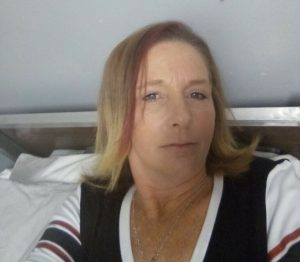Loss, grief and other struggles that life brings can challenge us all. But for individuals with substance use disorders, these bumps in the road may prompt severe relapse causing additional harm and potentially serious health concerns.
Last year, nearly 50,000 people in the United States died from opioid-involved overdoses. The misuse of and addiction to opioids—including prescription pain relievers, heroin and synthetic opioids such as fentanyl—is a serious national crisis that affects public health as well as social and economic welfare. In California alone there were more than 5,500 opioid overdose deaths in 2020, including nearly 4,000 deaths from fentanyl.
The healthcare community is rallying together to find better ways of supporting those struggling with addiction. And for one Sacramento woman, their help has been a life-changing experience.
A drug user since age 14, Sacramento resident Josie Morales faced a wall of pain and loss for the majority of her life. She turned to heroin, methamphetamines and marijuana to cope with the loss of her sister, husband and close friends to drug overdoses, and a brother who died of stroke. Her substance use had resulted in broken relationships and severed ties with family, job loss, housing insecurity and unsafe living conditions.

Josie Morales
After a six-year period of sobriety, prompted in part by a promise to her 7-year-old grandson, Morales relapsed and found herself seeking emergency care at Sutter Medical Center, Sacramento. An emergency nurse caring for Morales was quick to see her desperation for care and a signpost toward recovery.
“I’ll never forget her compassion and heartfelt words that gave me hope as she held my hand: ‘Don’t worry, we’ll get through this together’,” says the 47-year-old Morales. She received treatment with a medication for opioid use disorder to curb her need for opioids and to prevent overdose, as well as a referral for follow-up care. She has since completed a 10-step, 60-day narcotics anonymous program through the A House, an inpatient detox program run by WellSpace Health Residential Treatment Center in Sacramento.
“We are deeply proud of the steps taken at Sutter to support the vulnerable individuals in our communities who struggle with substance use disorders,” says Jennifer Denno, a clinical nurse educator and emergency services pre-hospital care coordinator at Sutter Medical Center, Sacramento.
These efforts include sharing and scaling appropriate opioid prescribing guidelines across Sutter’s integrated network, advancing opioid use disorder treatment, implementing overdose prevention strategies and addressing stigma in ways that may help further reduce opioid use. She notes that emergency departments across Sutter Health will continue expanding initiatives for medication-assisted treatment and substance use navigators to aid patients like Morales.
For Morales, her dedication to recovery has resulted in a milestone: three months of sustained sobriety and regained employment.
“As my journey through recovery continues, I am so grateful for the heartfelt care and expertise offered at Sutter that helped save my life and reaffirm my truth—which is to do the steps, stay sober and live a full life enriched with new memories made with my grandson,” says Morales, who is continuing recovery treatment at WellSpace’s community campus in Mather, Calif., where she has received continued support from staff. “I encourage other individuals who are struggling with substance use disorders like OUD to attend Narcotics Anonymous or Alcoholics Anonymous meetings, finish a 12-steps program and help support others who are on their path to recovery.”





